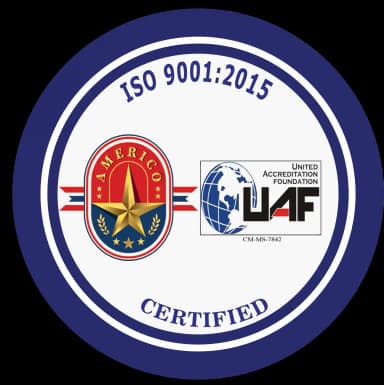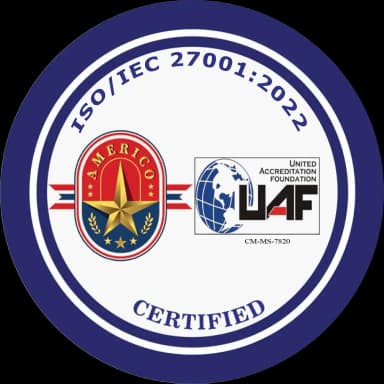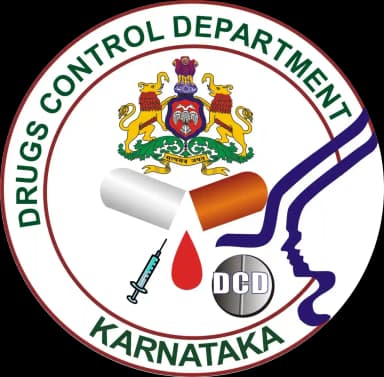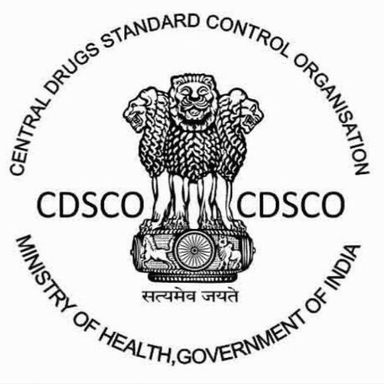Pharma Contract Manufacturing: A pillar of pharmaceutical Success
Pharma Contract Manufacturing: A pillar of pharmaceutical Success
In the intricate world of pharmaceuticals, companies strive to excel in product quality and cost-effectiveness. One practice that has gained significant prominence in achieving this delicate balance is pharma contract manufacturing. This article will explore the world of contract manufacturing in the pharmaceutical industry, its significance, benefits, processes, considerations, case studies, challenges, future trends, and the global landscape.
Significance:
Contract manufacturing in the pharmaceutical industry is a strategic partnership in which a pharmaceutical company (the client or sponsor) outsources the production of pharmaceutical products or components to a specialized manufacturing organization (the contract manufacturing organization or CMO). It holds significant importance for several reasons:
1.0 Cost Efficiency:
Economies of Scale: providers often have large-scale, specialized facilities that allow for cost-effective production due to economies of scale. Pharmaceutical companies can save on capital expenses associated with building and maintaining their manufacturing plants.
Reduced Overheads: Outsourcing manufacturing reduces overhead costs related to facility maintenance, personnel training, and regulatory compliance.
2.0 Focus on Core Competencies:
R&D Focus: Pharmaceutical companies can concentrate on research, development, and innovation, which are central to their core competencies. This can lead to accelerated drug discovery and development.
3.0 Flexibility:
Quick Response to Market Changes: CPMs can quickly adjust production volumes to meet fluctuations in market demand, helping pharmaceutical companies stay agile in a competitive industry.
Reduced Lead Times: The expertise of CPM providers can lead to shorter lead times in drug production, enabling faster time-to-market for new medications.
4.0 Quality and Expertise:
Specialized Knowledge: CDMOs often possess deep knowledge of pharmaceutical manufacturing processes, regulatory requirements, and quality control, ensuring high-quality product outcomes.
Cutting-Edge Technology: CPM facilities are equipped with the latest technology and equipment, which may not be financially feasible for individual pharmaceutical companies.
5.0 Regulatory Compliance:
Streamlined Compliance: CDMOs are experienced in managing complex regulatory processes. They ensure that products adhere to strict regulatory standards, reducing the risk of non-compliance and regulatory delays.
Benefits of Pharma Contract Manufacturing
- Expertise:
- Specialized Skills: CPMs employ experts in pharmaceutical manufacturing, formulation, and analytical methods, ensuring the production of high-quality drugs.
- Consistency: With rigorous quality control, CPM providers maintain consistency in product quality and performance.
- Time Savings:
- Accelerated Development: CPM can expedite the drug development process by reducing production and testing timelines.
- Rapid Market Entry: Faster production means quicker entry into the market, helping pharmaceutical companies capitalize on opportunities sooner.
- Reduced Capital Investment:
- Financial Efficiency: Pharmaceutical companies avoid the substantial capital investment required for manufacturing facilities, allowing them to allocate resources to other strategic areas.
- Cost Predictability: Contract manufacturing often involves predictable, transparent pricing arrangements, reducing financial uncertainty.
- Risk Mitigation:
- Business Continuity: CPMs often have risk mitigation plans to ensure a continuous supply of products, even in the face of unexpected challenges.
- Quality Assurance: Stringent quality control measures reduce the risk of recalls and supply disruptions.
- Market Expansion:
- Diverse Capabilities: CPM offers a wide range of manufacturing capabilities and can support the expansion of product lines and market reach.
- Global Reach: Contract manufacturers with international operations help pharmaceutical companies enter new markets with ease.
- Scalability:
- Adaptable Production: CPM providers can efficiently scale production up or down according to market demand, allowing for lean and efficient operations.
- Avoiding Overcapacity: Pharmaceutical companies can avoid the costs associated with maintaining excess production capacity during periods of low demand.
- Reduced Regulatory Burden:
- Compliance Management: CPM handles regulatory affairs, reducing the administrative burden on pharmaceutical companies.
- Smooth Approval Processes: Experienced CPM providers help streamline regulatory approvals and minimize delays.
The Pharma Contract Manufacturing Process
The journey from conceptualization to the delivery of pharmaceutical products involves several key stages:
Initial Consultation
The process begins with an initial consultation between the hiring company and the contract manufacturer. During this stage, both parties establish the project's scope, objectives, and timelines. This phase is crucial for setting expectations and ensuring alignment on project goals, which is fundamental to a successful collaboration.
Product Development and Formulation
Once the agreement is in place, the manufacturer proceeds with product development and formulation. This includes research, development, and the creation of prototypes. The manufacturer's research and development capabilities can prove invaluable in enhancing product formulations, optimizing ingredient selection, and fine-tuning the product to meet market demands.
Regulatory Compliance
Pharmaceutical products must adhere to strict regulations to ensure patient safety. Contract manufacturers possess a strong understanding of regulatory compliance and have extensive experience in navigating the intricate regulatory environment. They take responsibility for obtaining the necessary approvals and licenses, ensuring that the products comply with regional and international regulations. This alleviates the regulatory burden on the hiring company, allowing them to focus on other critical aspects of their business.
Manufacturing and Quality Assurance
At the heart of the manufacturing process, this stage involves the production of pharmaceuticals, followed by rigorous quality assurance checks to guarantee the product's safety and efficacy. Contract manufacturers invest in cutting-edge manufacturing technology and equipment to optimize production efficiency. This dedication to quality and technological advancement minimizes the likelihood of defects or inconsistencies in the final product. The stringent quality control measures that contract manufacturers employ contribute to creating pharmaceutical products that consistently meet the highest industry standards.
Packaging and Distribution
The final step encompasses packaging the products securely and their distribution to the market. Contract manufacturers often have established relationships with packaging and logistics providers, streamlining this aspect of the production process. The products are prepared for shipment, ensuring they reach their destinations intact and on schedule. This end-to-end service simplifies the entire supply chain process for pharmaceutical companies.
Considerations When Selecting a Contract Manufacturer
Choosing the proper contract manufacturer is a critical decision. It involves assessing factors such as the company's reputation, adherence to regulatory standards, production capabilities, technological proficiency, and the quality of communication and support. When a contract manufacturer is well-suited to your needs, they effectively become an integral part of your business, sharing common objectives and a dedication to mutual success. Therefore, a comprehensive evaluation is essential for establishing a productive and enduring partnership.
Challenges in Pharma Contract Manufacturing
Pharma contract manufacturing offers numerous advantages, but companies must be prepared to address its challenges. Quality control challenges can arise, demanding ongoing vigilance and collaboration between the hiring company and the contract manufacturer to ensure consistent quality. Intellectual property concerns may also occur, especially when the formulation and processes are proprietary. Additionally, supply chain risks can impact production schedules and product availability, necessitating effective risk management strategies.
Future Trends in Pharma Contract Manufacturing
The pharmaceutical industry is evolving rapidly, and contract manufacturers are at the forefront of these changes. To uphold their competitiveness, they are incorporating cutting-edge technologies such as automation, data analytics, and artificial intelligence to enhance operational efficiency and product quality. The integration of these technologies into the manufacturing process not only reduces costs but also improves production accuracy and consistency. In addition to technology, sustainability initiatives are becoming a significant trend. Contract manufacturers increasingly focus on environmentally friendly practices and sustainable sourcing of materials, aligning with the growing global emphasis on sustainability and corporate responsibility.
The Global Landscape of Pharma Contract Manufacturing
The global pharma contract manufacturing landscape is expansive and diverse. It includes key players in the industry, such as Lonza Group, Catalent, and Patheon, as well as many specialized and regional manufacturers. Pharmaceutical contract manufacturing is increasingly important in emerging markets such as India and China. Their cost-effective production capabilities, coupled with a skilled workforce, have positioned them as strong contenders in the global pharmaceutical manufacturing arena. As a result, companies looking to leverage the benefits of contract manufacturing have a wide range of choices when selecting a contract manufacturer. Despite the challenges, the future of pharma contract manufacturing looks promising, with evolving trends and a dynamic global landscape.
Frequently Asked Questions
1. What are the main benefits of pharmaceutical contract manufacturing?
A. Pharma contract manufacturing offers cost efficiency, expertise in quality control, and the flexibility to adapt to changing market demands. This enables companies to concentrate on innovation and enhancing product quality.
2. What measures can pharmaceutical companies take to guarantee the quality of products produced by a contract manufacturer?
A. Quality assurance and adherence to regulatory standards are crucial to ensuring product quality. Regular audits and quality control checks are essential to maintaining consistency.
3. What challenges do pharmaceutical companies face when opting for contract manufacturing?
A. Challenges can include quality control issues, concerns about intellectual property protection, and potential supply chain risks. Effective communication and collaboration with the contract manufacturer are critical to address these challenges.
4. What is the role of advanced technologies in the future of pharma contract manufacturing?
A. Advanced technologies, such as automation, data analytics, and artificial intelligence, are expected to enhance efficiency, reduce costs, and improve product quality in contract manufacturing.
5. Are there any emerging markets in the global landscape of pharmaceutical contract manufacturing?
A. Yes, emerging markets in countries like India and China are gaining prominence in the pharmaceutical contract manufacturing sector due to their cost-effective production capabilities and skilled workforce. These markets offer attractive opportunities for companies seeking contract manufacturing partners.






